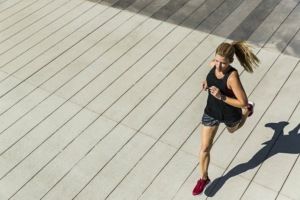News
Corona has significantly impacted physical activity in Denmark
This article is more than 4 years old.
New report showed that the pandemic has adversely affected the sports and exercise habits of every second adult over the past year

More people are exercise along now (photo: Pixabay)
According to a new survey, the COVID-19 pandemic has had quite the negative effect when it comes to the public’s sports and exercise habits.
The report, compiled by DGI and DIF, showed that over half (55 percent) of the 21,000 respondents had been less physically active over the past year, particularly those under 40 and people who are getting an education.
“We know that physical activity in active communities have an immense impact on physical, social and mental health, so it’s deeply concerning that over half have become less active,” said DGI head, Charlotte Bach Thomassen.
READ ALSO: Danish News Round-Up: How active is your municipality?
Exercising more alone
The annually-produced report further revealed that 59 percent of respondents said they did some form of physical exercise in May 2021, compared to 61 percent before the pandemic.
Another aspect of the survey showed that 18 percent of respondents said they had become more active due to the pandemic.
A further 48 percent said they had become less active in sports clubs over the past year, while 43 percent indicated that they had exercised more alone compared to usual.
“In the long run, we need to get everyone active again like they were before COVID-19,” said Thomas Bach, the deputy head of DIF.
“And they need to bring their friends, neighbours and family members along so Denmark can become the world’s most active population.”










































